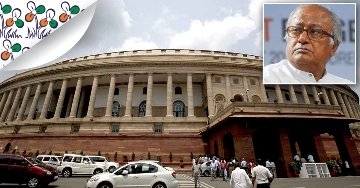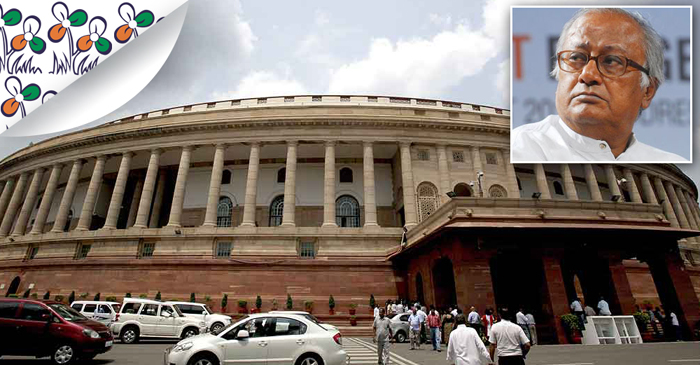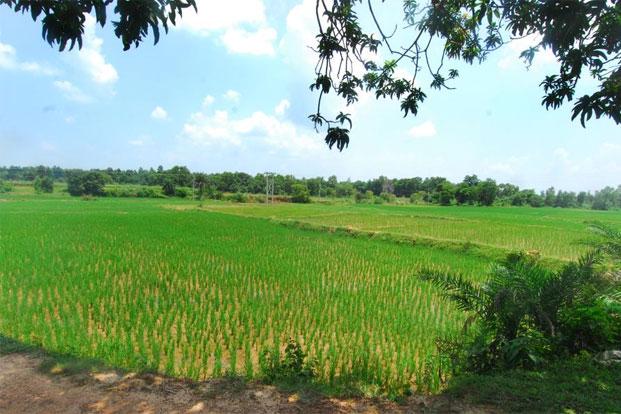Full Transcript
Sir, I rise to speak on the Whistle Blowers Protection (Amendment) Bill, 2015. I am opposed to the Bill. This is an effort to dilute the basic concept of whistle blowers. This is the way Governments work these days.
Now what is the hurry of bringing the Whistle Blowers Protection (Amendment) Bill on the last day? The reason is that the Opposition had attacked the Government on its false promises of transparency. The same day, the Cabinet met and passed the amendment which effectively dilutes the scope of the Whistle Blowers Protection Act.
The reactions of the Government are generally knee-jerk. They act immediately. If somebody mentions about a food park, one Minister will make five interventions. So, they are reacting in a knee-jerk fashion. This is not the way the Government should function.
Let me go back a little to the background of the original Bill on Whistle Blowers. Now in the West, whistle blower protection has been there throughout. In the United States, it was through the constitutional provision as well as other statutes. In the UK, there is the Public Interest Disclosure Act, 1998 and the Employment Rights’ Act, 1996. The UK Whistle Blower law providing protection to employees reporting on their employers underwent a change due to the June 2013 amendment.
The main change to the law is that any disclosure must be in the reasonable belief of the workers be of public interest. Now in India, why did the question of protection whistle blowers arise? When Shri A.B. Vajpayee was the Prime Minister, one Shri Satyendra Dubey, an employee of the NHAI was killed after he wrote a letter to the Office of the Prime Minister about corruption in the construction of National Highways. His letter to the Prime Minister was circulated routinely. It reached the hands of those criminals and he was killed. Two years later, an Indian Oil Corporation officer Shri Shanmughan Manjunath was murdered for sealing a petrol pump which was selling adulterated fuel. In May, 2012, Shri S.P. Mahantesh was murdered for reporting irregularities in land allotment by the society.
As a result, after especially the Satyendra Dubey incident, our Supreme Court pressed the Government for issuing an Office Order about the Public Interest Disclosures and Protection of Informers Resolution, 2004 designating the Central Vigilance Commission as the nodal agency to handle any complaints of corruption. The RTI Act, 2005 was the legislation for holding the Government accountable. The the Whistle Blowers’ Protection Bill, 2011 was passed in the Lok Sabha. Later it was passed in the Rajya Sabha. The Bill aimed to protect honest officials or persons from harassment but did not provide for any penalty for harassing a public servant. The CVC was the competent authority under the original law.
The Whistle Blowers Protection Act 2011 sought to establish a mechanism to receive complaints relating to disclosure on any allegation of corruption and wilful misuse of power against a public servant only. What the present Bill moved by hon. Minister Dr. Jitendra Singh does is to take out almost 11 items out of the purview of the Whistle Blowers Protection Act, all in the name of national security.
Major cases of corruption in defence sector were exposed by whistle blowers. Scams relating to Scorpene submarine, Tatra truck, Augusta Westland helicopter all have been exposed by whistle blowers. It has been seen that corruption takes place mainly in defence deals. Is the Government worried that there is something wrong with the Rafale deal now and that is why they are quickly putting a lid on any disclosure? This is what I am worried about.
The basic idea that we should have a clean and transparent administration, and that the people who expose corruption at official levels should be protected by the Government is being given up. If you do not do it in the case of defence sector, then where do you protect the whistle blowers is the question I pose to Dr. Jitendra Singh.
Basically this law is bad in word as well as in practice. I will mention the comments made by some people. “However, in the garb of protection it tends to limit that and the purpose for which the law is being introduced stands defeated. The solution for the apprehension would be to build a mechanism in the Act which protects or keeps classified any disclosure that could be against national interest”. The Government could have done that. Instead it is saying that all this is out of the purview of the Bill.
One has to realise that the Act has come into place to disclose acts related to corruption and misuse of power which are against the national interest. Now corruption is also against the national interest. How many clauses have been introduced in the Bill to so-called protect national interests? Eleven items have been taken out of the Bill. Information and disclosure affecting sovereignty and integrity of India, information which is forbidden to be published, information which will cause a breach of privilege, information relating to commercial confidence – that is transactions between companies, trade secrets or intellectual property – information which is available to a person in his fiduciary capacity, information received in confidence from a foreign government, etc., are totally excluded from the Whistle Blowers Protection Act.
What remains, Dr. Singh? Do you want to do away with the Whistle Blowers Protection Act? Do you want to do away with the Right to Information Act? What else? You wanted to do away with the Land Acquisition, Resettlement and Rehabilitation Act by introducing amendment after amendment. What is the hurry in introducing these amendments? I would like to understand that.
Sir, the democracies of the West which are supposed to be models of democracy are also afraid of whistle blowers. We all know of Julian Assange who started the Wikileaks. I have been told by some journalist friends that all cables including the cables between the Indian Embassy, US Embassy in India and State Department etc., were leaked by Assange. He had to go through severe prosecution. He had to take shelter in a hotel near the Moscow airport. Even the American Government was after him. Then, we have the case of Snowden. For more than one year, the man who exposed corruption in high places in the US Defence Department was held up in Ecuador Embassy in London. Why? He exposed certain dealings in American Defence establishment. We do not want to go into that. We are a free society.
That is why I request that we should not press for passing this Bill on the last day. In any case, it will not be passed by the other House. Please withdraw it and prove that you are committed to transparency in Government transaction. In the name of national interest, do not take away the right of the whistle blowers who want to expose corruption in high places. Please do not put their lives at risk. With these words, I oppose the Bill. I wish I had given many amendments, and then I would have taken vote on every amendment.




